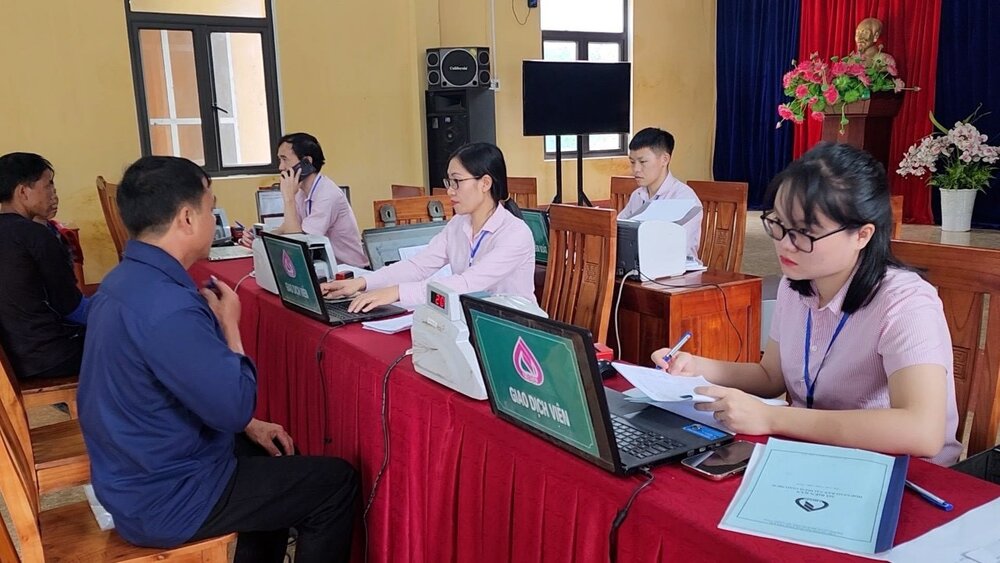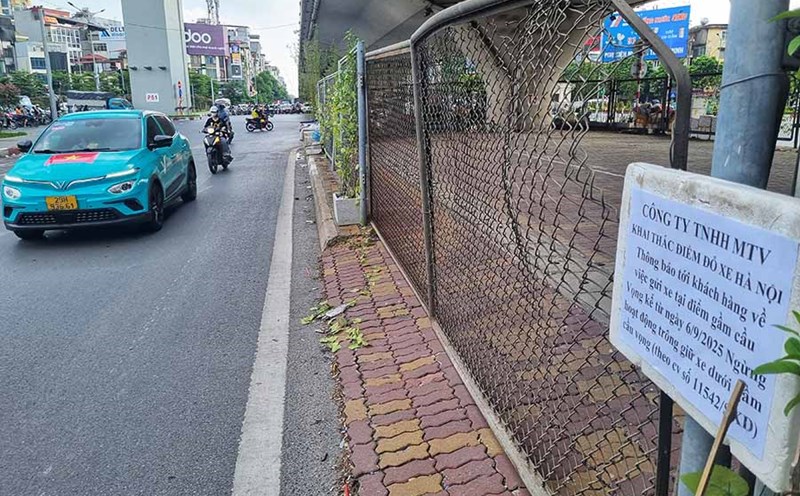Mu Cang Chai, with 96% of ethnic minorities (mainly H'Mong), now has roads to the commune and village that have been widened, concreted, flat, and shaded by trees. Although still among the poorest districts in the country, the aspiration to escape poverty of the people here has been awakened by the effective implementation of practical policies of the Party and State, and poverty reduction programs and projects that have been flexibly deployed by the locality, in accordance with the actual situation.
By the end of 2023, the district's multidimensional poverty reduction rate reached 12.42%, equal to 114% of the assigned plan. The lives of ethnic minorities are also increasingly prosperous and bright. The district's goal is to promote strong socio-economic development, become a tourist district with a unique, safe, friendly destination, and by 2025, basically get out of the list of poor districts 30a.

Mu Cang Chai District Party Secretary Nong Viet Yen said: This is the result of the district's innovation in approach, making poor households become the real subjects of the sustainable poverty reduction program, especially focusing on mobilizing more social resources, especially focusing on policy capital, prioritizing timely investment, targeting the right subjects, and meeting the target for poverty reduction work...
The achievements in the highlands of Mu Cang Chai, in addition to the participation of the entire political system and the active response of ethnic minorities, cannot fail to mention the contributions of the district's Social Policy Bank over the past 22 years, contributing to effectively supporting the district in completing programs and plans for economic development, sustainable poverty reduction, and new rural construction.
Director of the District Social Policy Bank Bui Van Hoa shared: The unit closely followed the direction of the Central Social Policy Bank, the provincial Social Policy Bank branch and local leaders, devoted all efforts and unanimously carried out the task, focused on mobilizing resources and promptly transferring policy capital to the villages, to the right beneficiaries, fully meeting the requirements of economic and social development and the sustainable poverty reduction program of the locality. By June 30, 2024, the total policy capital at the unit reached nearly 470 billion VND, an increase of 58 billion VND compared to the beginning of the year, completing 99.4% of the assigned plan.
The district's Social Policy Bank has synchronously implemented appropriate solutions, mobilized large capital sources, fully and promptly met the borrowing needs of poor households and disadvantaged ethnic minority families. That result also affirmed that the Party Committee and local authorities at all levels have thoroughly grasped the content of Directive No. 40-CT/TW, through the drastic direction of transferring capital sources originating from the State budget to a focal point, the Social Policy Bank, and at the same time, balanced and supplemented the local budget entrusted through the Social Policy Bank to increase lending resources for poor households and other policy beneficiaries in the area.
The entire capital provided by the Central Government, including 10.6 billion VND of capital entrusted from the local budget, has been transferred by the Social Policy Bank of Mu Cang Chai district to the right beneficiaries through 14 Commune Transaction Points, with 188 Savings and Loan Groups in all villages and residential areas, helping people with capital to proactively organize production, create a stable source of income, and improve the quality of life.
A vivid example is in Che Cu Nha commune, thanks to preferential capital, a traditional brocade weaving cooperative has been established, gathering Mong women in the commune to restore weaving and beeswax painting to sell to tourists, creating jobs, increasing income, and improving life. Ms. Ly Thi Ninh - Head of the weaving group in De Thang village excitedly said: Mong women today not only know how to use preferential loans to embroider and weave, but also know how to get rich by guiding tourists to see the terraced fields.
In Hua Khat village, Nam Khat commune, Mr. Thao A Phong has borrowed policy capital to develop a wild boar farm, combined with fruit tree planting, earning more than 200 million VND each year, escaping the list of poor households, achieving the title of excellent production and business at the district level.
The poverty reduction and sustainable social security in Mu Cang Chai have achieved great successes. These credit policy officers in the mountainous region will continue to closely follow the policies and resolutions of the Party and State, promptly and safely transfer the Government's preferential capital to beneficiaries in need, effectively serving the sustainable poverty reduction and ensuring local social security.










